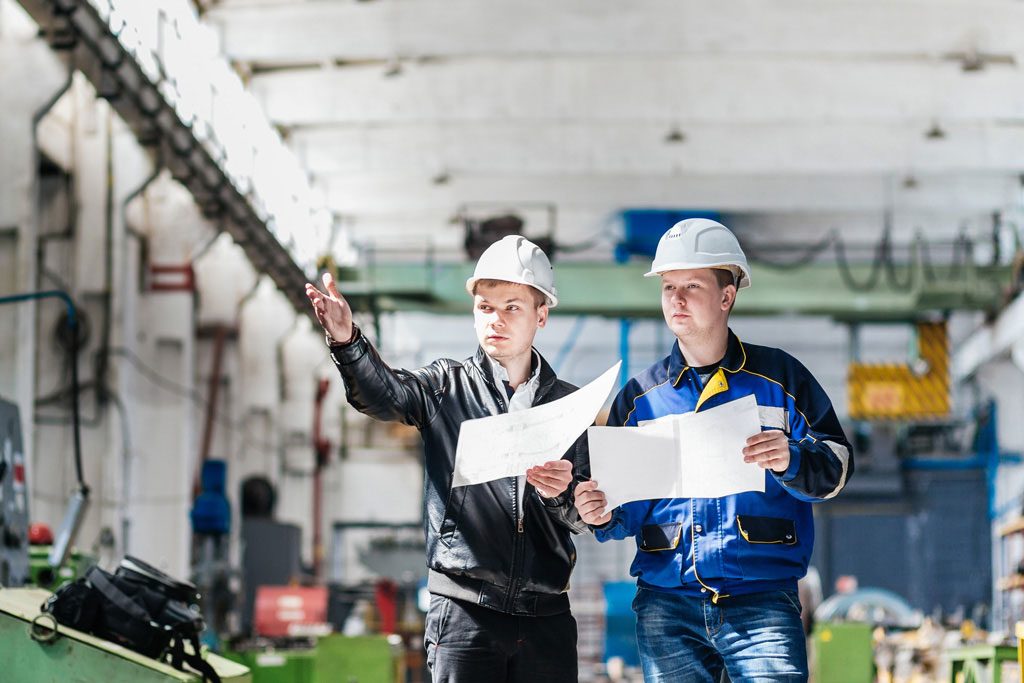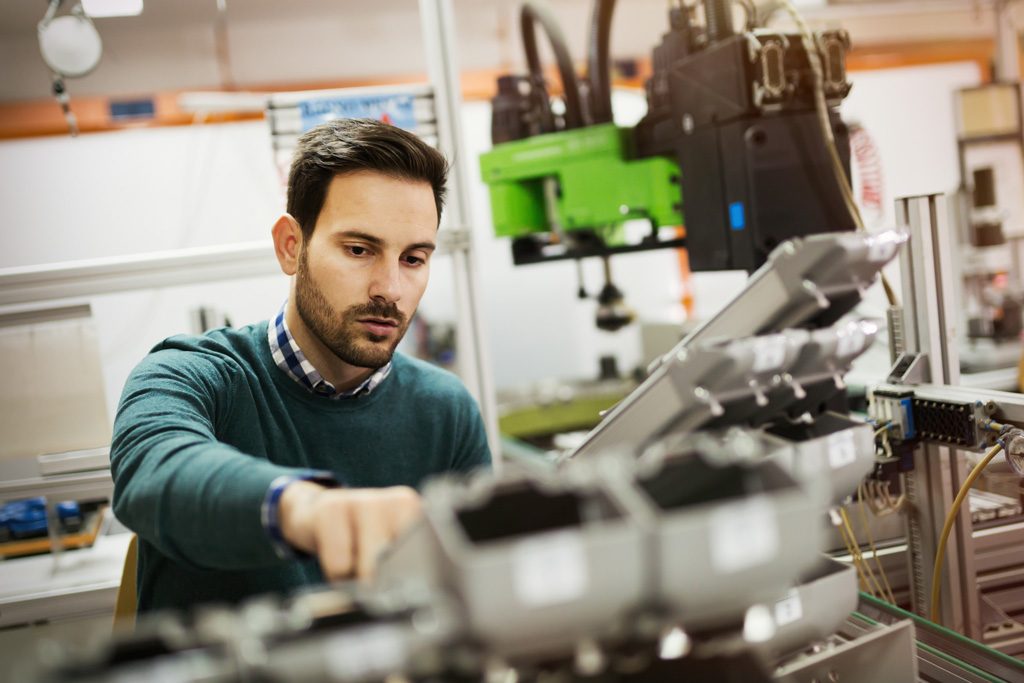The Industrial Engineering deals with the holistic design of socio-technical systems in the triad of human, technology and organization, with the intention to find the best possible productivity of the entire system.
The Industrial Engineering deals with the holistic design of socio-technical systems in the triad of human, technology and organization, with the intention to find the best possible productivity of the entire system.
In addition to the classic topics of lean management, such as value stream analysis and design, workplace design and synchronization, capacity planning and shop floor management, the topic of work system design also includes advanced, complex planning tasks such as line clocking, ergonomics evaluation or layout design. In all applications, special attention is paid to basic and advanced training in the company environment as well as to the modern approaches of on-the-job training and in-house competence building.
The work system design benefits greatly from their connection to the fields of Digital Manufacturing and Industrial Data Science. In terms of equipment dimensioning as well as value stream analysis and design, digital models and digital mock-ups are increasingly being used. These are further developed in the areas of digital human models (eg for individualized ergonomic applications) and process simulation (eg for the transition from manual to hybrid assembly). The design of ergonomically optimized and, above all, secure work systems, in cooperation with the company’s collective bargaining partners, represents an everlasting challenge that the IPS Engineers are pleased to face.

The study of work and time forms the traditional basis of industrial engineering and is to this day
an indispensable basis for essential corporate processes in the design and control of production systems.

Target Costing, Resource Sizing, Order Scheduling, Recruitment and Productivity Management are just a few of the mission-critical business functions that can not deliver adequate results without a timely and reliable study. Using modern methods such as motion capture, sensor-based motion data acquisition, a uniformly digitally implemented time management and the systematic development of time-based methods, the possibilities of process acquisition and analysis are continuously expanded. They allow improvements, for example, in the integrated ergonomics evaluation, automation-compliant process description or even when using smart devices on the shop floor.
In addition to the established methods of process recording, such as REFA time studies and MTM analyzes, new forms of self-recording, machine data acquisition for process planning and novel acceleration and rotation sensors for process detection are gaining in importance and provide valuable information on the execution of both automated and manual processes in production.